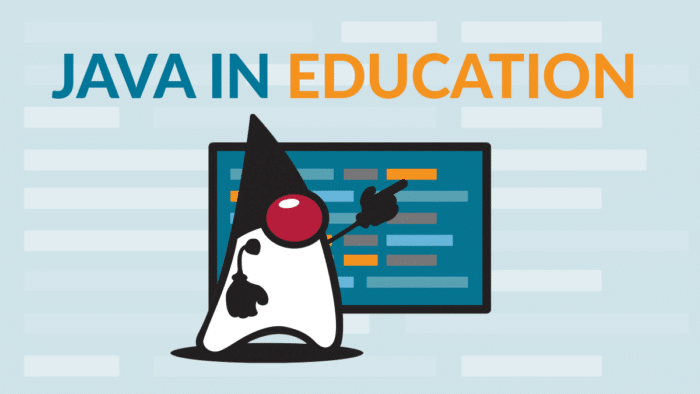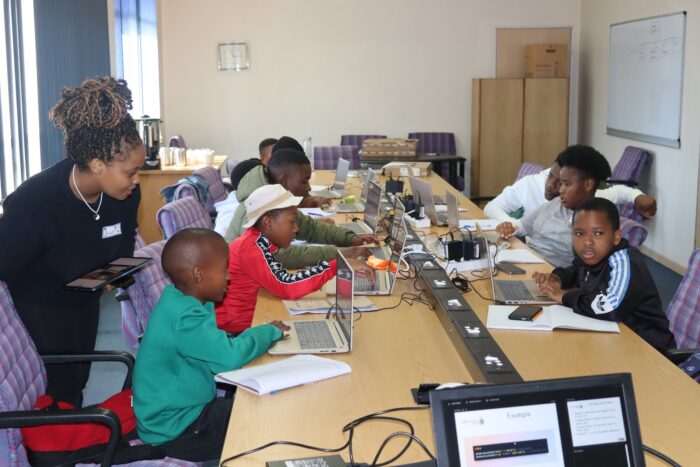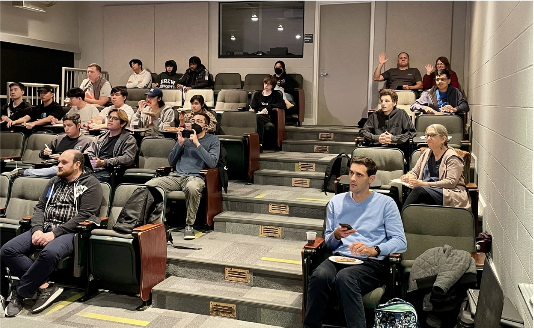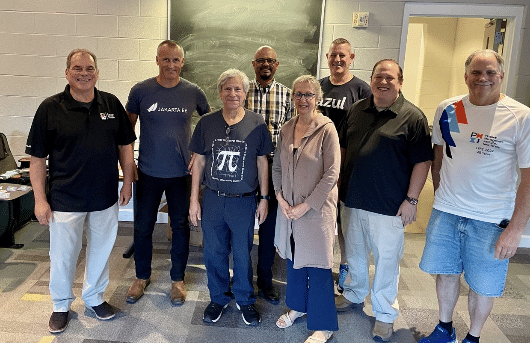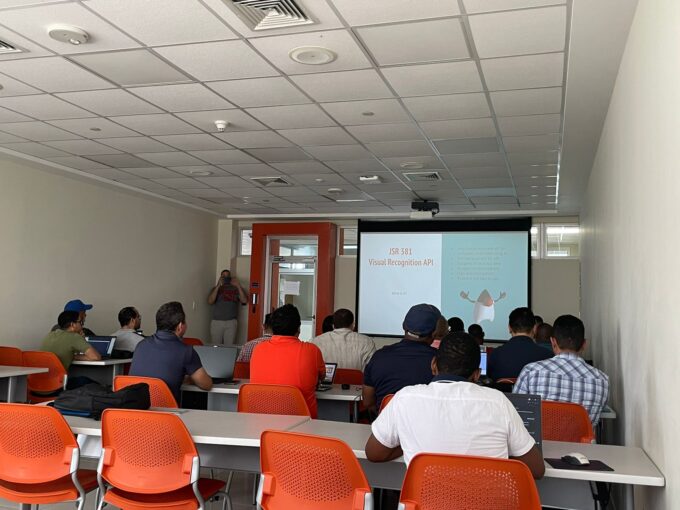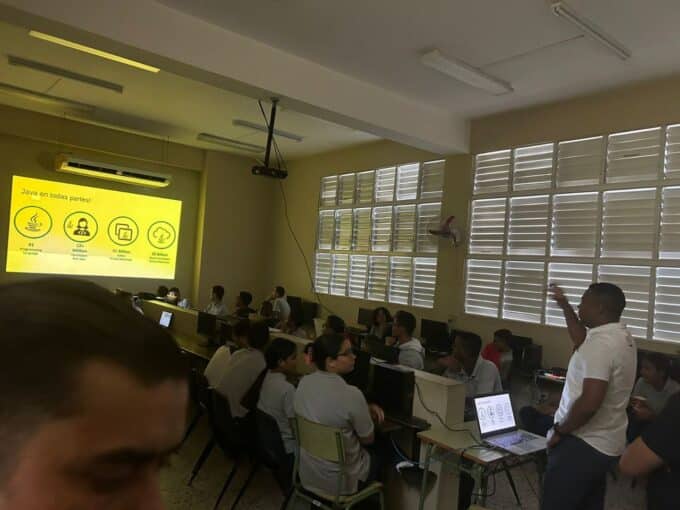The Java in Education initiative was launched after discussions in the JCP Executive Committee meetings that the JCP program could support local Java User Groups to partner with their local educational communities to bring Java technology to the next generation of Java developers. Starting in June of 2020, members of the incredible community of Java User Groups, together with the JCP program, worked to create materials and resources to bridge the gap between the educational environment and the industry. Java moves our world because of its use in applications on our phones, laptops, enterprises, and the cloud. We also want Java to be a first citizen in the educational communities.
To break the myths about the capabilities of Modern Java, we have prepared different presentations and videos that highlight many of the benefits of learning Java including some of the enhancements that the Java language has included to its ecosystem during these years. These enhancements help dispel some of the myths surrounding the language. From JShell in JDK9, the Instance Main Methods as a preview feature since JDK 21 (you don’t need the public static void main(String[] args) anymore for launching a Java program), and, the Implicitly Declared Classes, these are just a few of the features that are helping Java to evolve so that students and new developers can write their first lines of code without the need to understand the concepts that apply for large programs.
As part of the materials that the Java In Education working group has designed so far, you’ll find some presentations related to “Why you should teach Java, What is Java and why you should learn it, etc”, including the amazing work of JSR 381 - Visual Recognition API. This is a software development stand-alone optional package standard JSR developed through the Java Community Process (JCP) that simplifies and standardizes a set of APIs familiar to Java developers for classifying and recognizing objects in images using machine learning. In addition to classes specific to visual recognition tasks, it provides general abstractions for machine learning tasks like classification, regression, data set, and reusable design which can be applied to machine learning systems in other domains. At the current stage, it provides basic hello world examples for supported machine learning tasks (classification and regression) and image classification.- This material can all be found on the Java in Education wiki page , and it's available so that any person (JUG member or not) that wants to spread the knowledge and effort that Java is putting into the education environment can use it. The target audience for these presentations comes from people with no CS background to professors who want to show how good Java can be in the learning experience of a new developer for their careers.
In the Java in Education wiki page , You will also see how different individuals and JUGs around the world have been already involved with this initiative and making their contributions by giving away this content to their local communities, that is the case of JOZI-JUG who has been performing many coding workshops (A coding workshop of 6 weeks) for kids with their Devoxx4Kids South Africa initiative, where various kids from primary and high school attended for weeks. They also had Java coding days where the joiners learned to code from scratch, and, at the end of these workshops the participants had the basic understanding of programming to write a simple program on their own.
The Garden State Java User Group GSJUG), one of the oldest jugs (founded in 2001 by Mike Redlich) is also bringing students into the fold. With two Drew faculty members on the group’s leadership team, GSJUG has strong ties with the university. Since they mostly meet on campus, Drew’s students have easy access to each of their meetings.
Professors in Computer Science and Cybersecurity courses encourage all students to attend. Drew University has many alums who have found jobs doing Java development The Garden State JUG also does outreach to local high school students. A computer science teacher at Madison High School is on the JUG’s board of advisors. From time to time, members of GSJUG’s leadership team visit the high school to give talks on Java and other topics of interest to students in the school’s programming club and programming courses. They always keep these presentations lively and interactive. They come with a few slides, but spend most of the time answering the student’s; questions, and actively seeking feedback from the students at the meeting. What kinds of computing do they find most interesting? What has been their experience learning Java? What concerns do they have about careers in computing?
The Dominican Republic JUG (Java Dominicano) has also been part of this initiative, with some of their participants as faculty members of a local university they had been very close in the collaboration with college students just like the GSJUG, and also, had prepared some different talks and workshops for their local community. In July of 2023 they made a Workshop around the Topic of Machine Learning in Java. The workshop was part of their JUG annual conference called JConfDominicana and went from - what is a JSR, why Java is adding these kinds of APIs to its platform - to develop some real examples of MACHINE LEARNING models and a Convolutional Neural Network for Visual Recognition, all in Java.
Just like JOZI JUG, and Garden State JUG, the Dominican Republic JUG has also given talks to high school students who don't know which language to learn or if their career will be successful in Computer Science. They presented at a local high school the presentation about “Java 4 young devs” available at the JCP site , ideal for the previously described audience.
Education is the key, and this is why Java wants to be a first citizen in that environment. As can be seen, the initiative has support from many JUGS around the globe but, still waiting for your support, join us to continue to grow Java in Education. Java in education
JOZI JUG and the Dominican Republic JUG were also recognized in the 2023 JCP Annual Awards, in the Java in Education Community Award category, with Jozi JUG selected as the winner by the JCP Executive Committee. JCP 2023 awards
Get involved today to bring Java to the next generation of developers in your local community. The JCP is celebrating its 25 years anniversary and you can also get involved in the celebrations by joining the JCP and hosting an event in your community. JCP 25 anniversary
